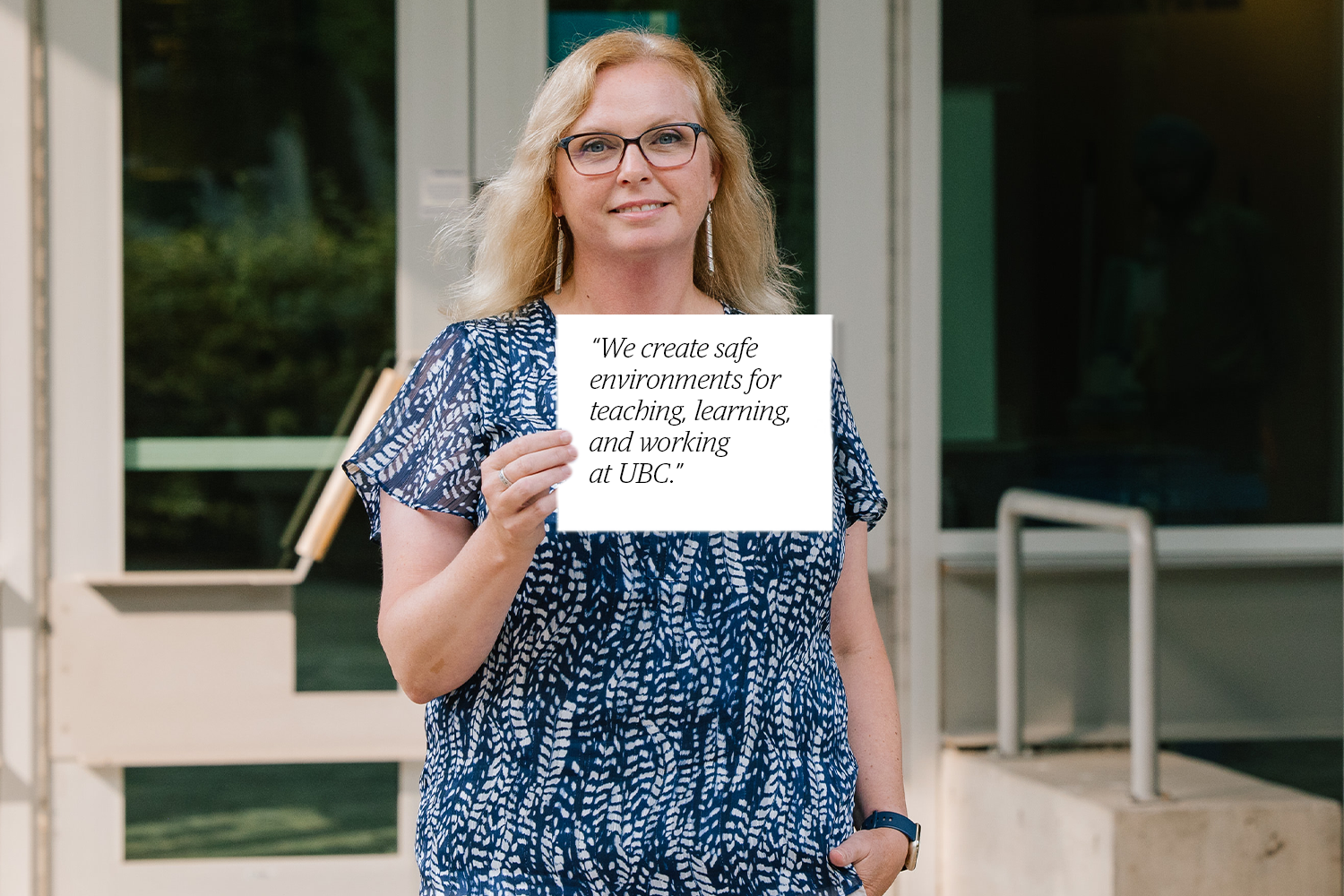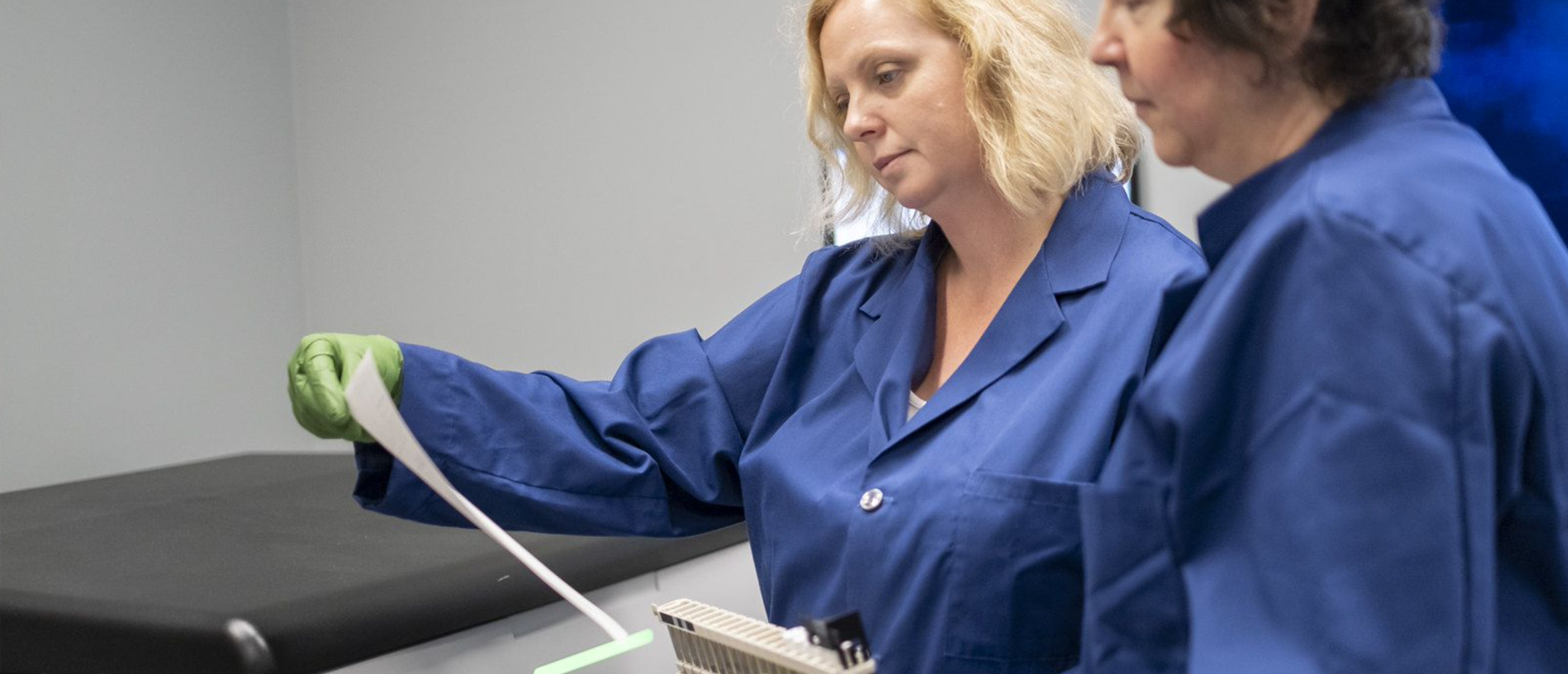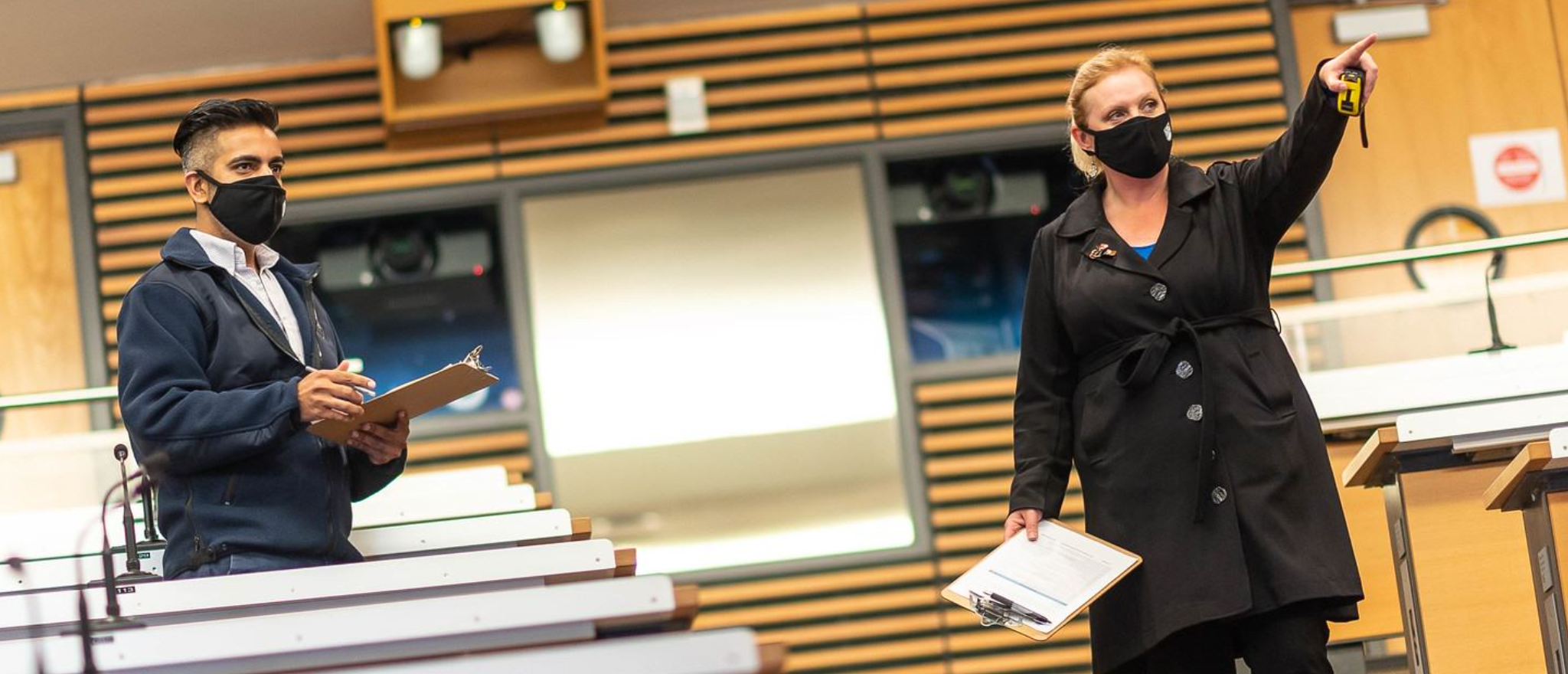Janet Hankins, Manager, Research Compliance & Occupational Hygiene

From developing safe work procedures for the university to minimizing the risk of a global pandemic on campus, Janet Hankins has faced many challenges throughout her career.
Advance our culture of service, stewardship and continuous improvement
Janet Hankins has been with UBC for over 20 years, and with Safety & Risk Services (SRS) for almost a decade. Leading a team of specialists in biosafety, radiation, and chemical safety and occupational hygiene, she is responsible for the handling of hazardous substances across the university.
Janet worked as a bench scientist (someone who carries out research in a laboratory) for many years before joining SRS. Her background in research and safety offers her a unique understanding of the work being done in labs through a protection and safety lens, as well as an ability to come up with innovative yet practical solutions that work for everyone.
In this Q&A, Janet shares how she resonates with the VPFO’s strategic directions and values, and how her team came together to support the university community through the onset of COVID-19.
What is your favourite part of your job as Manager, Research Compliance and Occupational Hygiene?
“I’m most proud when our teams come together to solve problems and accomplish amazing things for the university.”
– Janet Hankins
I enjoy the variety of my role. I love puzzles and problem solving and I can always rely on UBC to bring together intricate puzzles to be solved.
I never have a “typical” day — some days I am collaborating with different groups on campus to create coherent processes for safety; other days I’m meeting about system creation or going on sites to address more complex issues.
A good day at work to me is when I bring a solution that helps everyone.
What does Strategic Direction Advance our culture of service, stewardship and continuous improvement mean to you?
While all of the VPFO’s Strategic Directions resonate with me, stewardship and continuous improvement particularly speak to me. We are a service department and my team is accountable for identifying hazards and improving safe work practices through collaboration with research and operational staff.
In my opinion, a process is never finished. We are constantly finding ways to improve and creating solutions to help people stay safe while being successful in their roles.

It takes a dedicated team to make a difference.
Which one of the VPFO’s values (Excellence, Integrity, Respect, Accountability and Safety) do you identify with most?
Safety may be the obvious answer, given that I am part of the Occupational Health & Safety department within Safety & Risk Services. However, I believe that without integrity we won’t be able to deliver the rest of our values. Integrity is especially important when we talk about acknowledging and addressing our risks.
You chose to take your photo at Michael Smith Labs. Why is this location meaningful to you?
There is a spirit of innovation to Michael Smith Labs (MSL) both in their research and how their research is done.
Dr. Michael Smith was a faculty member in biochemistry whose research underpinned many discoveries that followed, including my own research for many years.
I also wanted to give MSL a shout out for being fantastic collaborators. When we come up with a new initiative, one of the first units I call is MSL. Keen about continuous improvement, they are always willing to be beta testers and incorporate a new technology.
What are some of your proudest achievements during your time in the VPFO?
I’m most proud when our teams come together to solve problems and accomplish amazing things for the university, especially under stressful circumstances such as our COVID response.
In our first phase, we set up a working group to create a safe environment for essential workers. This includes reviewing cleaning protocols and risk assessment processes, and listening to the concerns of these groups who physically had to be on campus, such as UBC Campus Security and IT.
While research was curtailed, it never fully stopped. The second phase focused on getting people back on campus, including health profession students and research groups — especially those with COVID research funding.
As the successive waves hit business continuity needs, orders and rules evolved and we kept going. We worked hard to obtain personal protecting equipment for our community and collaborated with partners to set up COVID testing clinics on campus.
It was a stressful but it was also really rewarding to experience this level of unity across the portfolio. I can always trust our teams to put aside our regular agenda and identify a common purpose — which is to support the university community.
The majority of UBC have no idea of the many issues that happened because VPFO departments worked together to solve problems behind the scenes. I would consider this a major success!

Don’t accept limits that you or anyone else tries to place on you. You don’t know what you’re capable of until you do things.
For you, what makes UBC different?
I still remember the first time I visited the Vancouver campus: I was 15 years old and part of Imagine Camp, a program for students from across the province who stay in UBC residences and attend lectures on different topics.
Coming from the Central Interior, I fell in love with campus as well as the amazing diversity of people, research and possibilities — and I never forgot that. I worked in industry and another university for many years, but I still wanted to come back to UBC.
What advice would you give to your younger self?
Don’t accept the limits that anyone tries to place on you, or even the ones you try to place on yourself. You don’t know what you’re capable of until you do things.
A typical weekend for you is…
I spend a lot of time indoors for work, so I try to go outside in my spare time. You’ll usually find me by the water sailing with my husband or beachcombing with my dog Scout.
Can you tell us one thing people don’t know about you?
I am the youngest of 15 children, so there were always people around to play and go on adventures with.
As the youngest of the bunch, I learned very quickly that ordering people around never works. I’d like to think my experience has equipped me well to work as part of a team and as a manager.